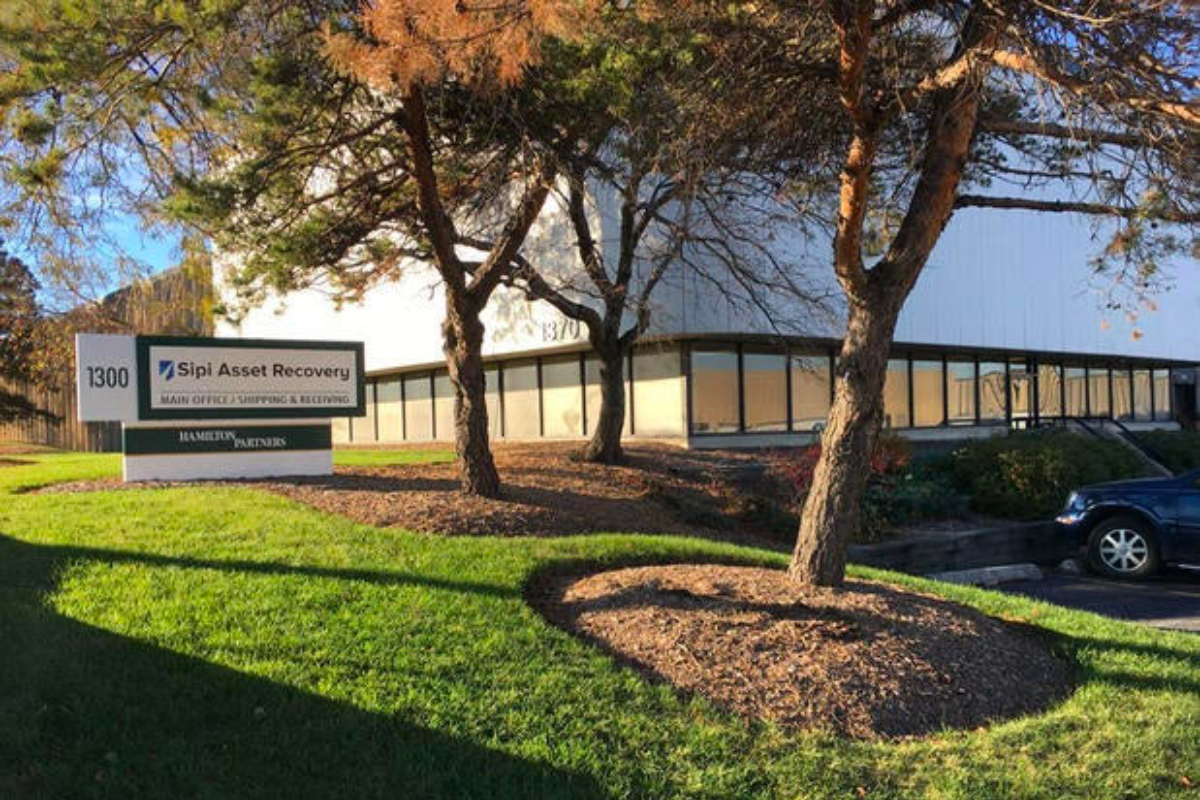
Tide Rock’s acquisition of Sipi Metals’ ITAD segment is intended to reduce shipping costs through improved logistics, among other goals. | Courtesy of Full Circle Electronics
Private equity firm Tide Rock has acquired the ITAD arm of Sipi Metals, a move that roughly doubles the size of Tide Rock’s existing electronics reuse and recycling company.
San Diego-based Tide Rock will fold the U.S. and Latin American assets of Sipi Asset Recovery into its existing electronics processor, Full Circle Electronics (FCE). The combined company now has nearly 400 employees and 11 facilities in the Americas.
Tide Rock’s Sipi asset purchase did not include the metals recovery-focused assets of Chicago-based Sipi Metals, which continues to operate as a separate company.
“Combining two high integrity ITAD and recycling businesses not only benefits existing Fortune 500 clients but better serves the growing IT and electronics asset disposition market,” Tracey Haslam, CEO of FCE, stated in a press release. “Our combined footprint creates better sustainability partnerships, more efficient logistics across locations, and enables us to create a balanced workload for faster, and safer, corporate pickup and processing.”
Cobbling together a large company
Today’s FCE is the product of several acquisitions.
In an interview, Haslam, who originally hails from Australia, explained she started what’s now known as FCE in Arizona. That first location, in Phoenix, does business as Westech Recyclers. She then expanded to Westminster, Colo., a location that continues to do business as R2 Disassembly, before acquiring Atlanta Recycling Solutions in Georgia.
Meanwhile, Tide Rock in February 2022 acquired its own electronics recycling and reuse company, Cal Micro Recycling in Ontario, Calif.
In September 2022, Tide Rock then acquired FCE, although Haslam maintains an ownership interest in FCE. Following that acquisition, Tide Rock acquired Recycle All Electronics (RAE), an Ocala, Fla.-based electronics processor, and brought it under the FCE umbrella.
The acquisition of Sipi Asset Recovery, which was finalized on July 25, brings the following additional locations into FCE’s fold: Hayward, Calif.; Chicago; Fort Worth, Texas; Mexico City; Bogota, Colombia; and Medellín, Colombia.
Haslam said the Sipi Asset Recovery facilities, which will be rebranded FCE by the end of this year, are a little more focused on reuse, whereas the existing FCE plants are more evenly split between reuse and recycling.
FCE had roughly 200 employees before the SIPI ITAD purchase, which added another 170 employees. Financial details of the purchase were not disclosed.
Benefits of the acquisition
The acquisition also helps fill a geographic gap – the northern U.S. – for FCE, Haslam said.
A major pain point for customers is the cost of freight, she said. The expanded footprint will help FCE reduce shipping costs, improving business performance and the proposition for the customer. That also means reducing the environmental impact of shipping material long distances.
“Part of our value proposition is to make sure that we’re being the best environmental stewards that we can,” Haslam said.
The move also helps generate and scale and volume needed for electronics processing, she said.
FCE is led by a private equity firm that’s different from many others. Based in Cardiff, Calif., near San Diego, Tide Rock is an unlevered buyout firm, meaning it does not use any long-term debt to buy a company and then put the debt on that company, with the goal of selling the acquired company to pay back investors, said Candice Marshall, chief marketing officer at Tide Rock.
Instead, Tide Rock invests in companies and grows their earnings with no expiration date in mind – Marshall noted that Tide Rock has had one company in its portfolio for nearly a decade. Tide Rock then distributes high quarterly yield to its investors.
Following the Sipi ITAD acquisition, FCE is contemplating further growth. Sipi’s ITAD facilities in the U.S. were acquired on an asset basis. Because Tide Rock bought the assets but not a corporate entity, it will take time to administratively absorb them into FCE, delaying the targeted growth plan.
For legal reasons, however, Tide Rock bought a corporate entity that owned the Latin American operations. That will allow FCE to move faster growing those operations, Haslam said.

